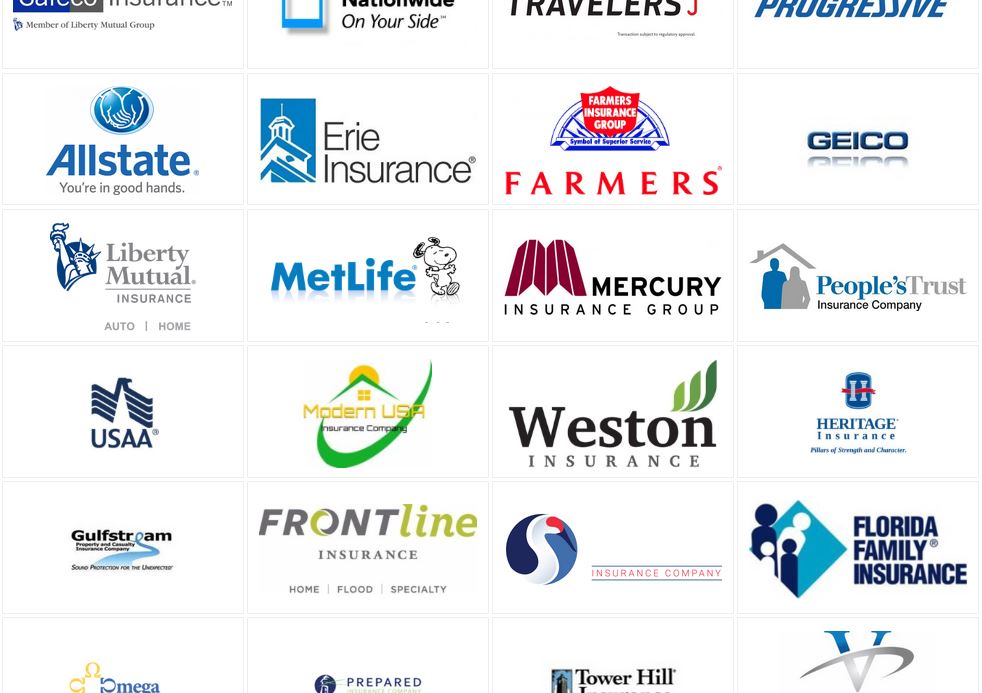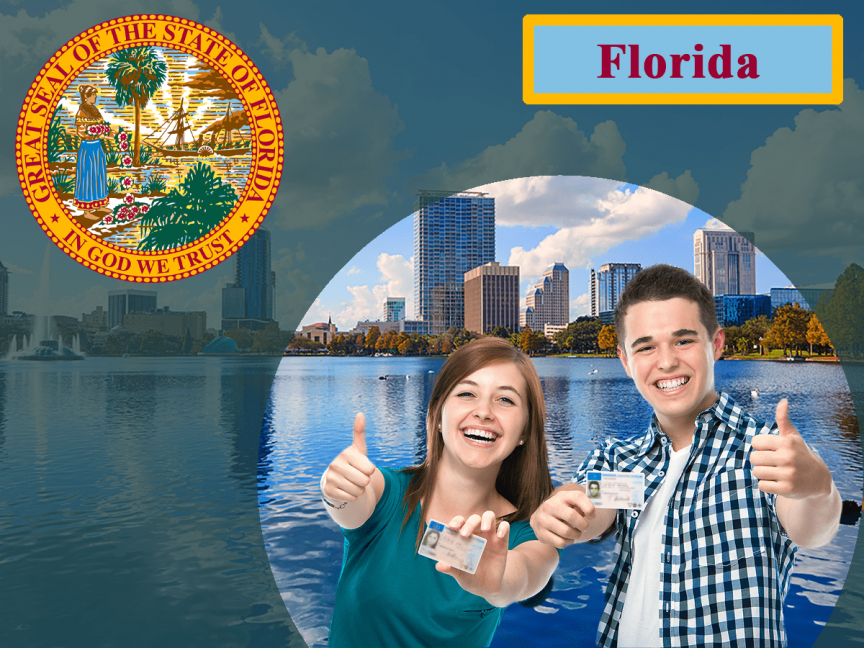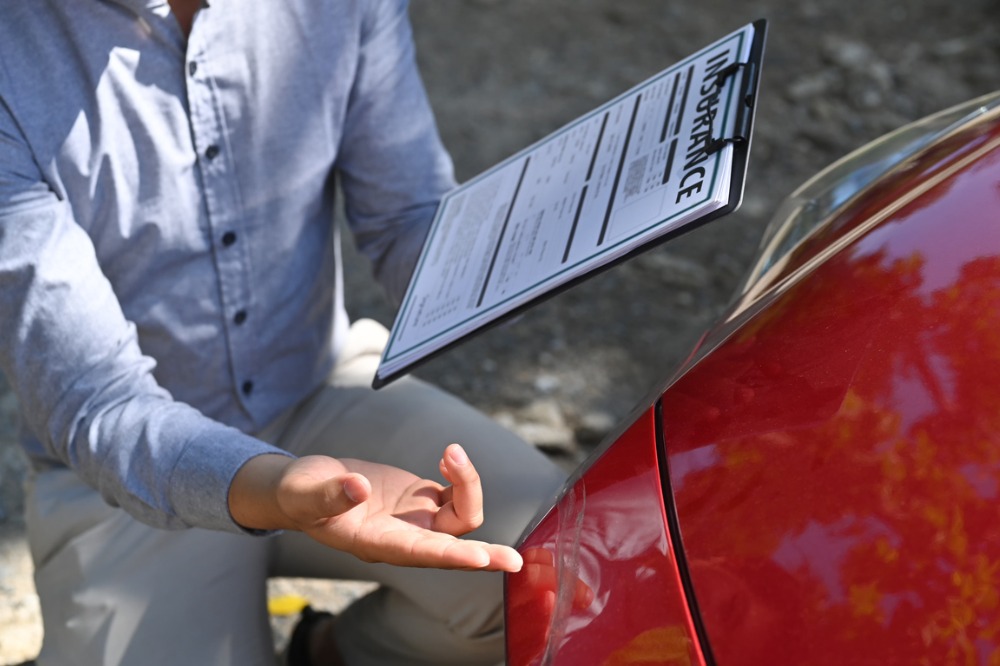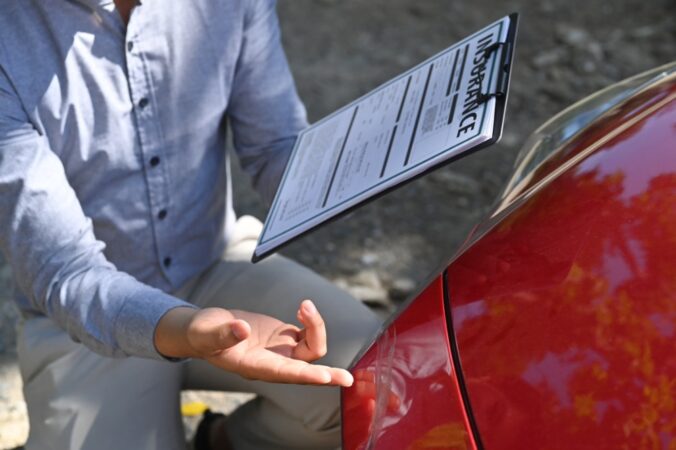
State of Florida car insurance presents a unique landscape for drivers, shaped by factors like hurricane risk, a complex legal system, and a competitive insurance market. Florida’s No-Fault insurance system, with its Personal Injury Protection (PIP) coverage, sets it apart from other states, while the impact of hurricanes on premiums and coverage adds another layer of complexity. Understanding these nuances is crucial for finding affordable and adequate insurance.
This guide delves into the intricacies of Florida’s car insurance market, providing insights into factors influencing premiums, exploring unique laws, and offering practical tips for securing the best coverage. From navigating the claims process to preparing for hurricane season, this comprehensive resource empowers drivers to make informed decisions about their insurance needs.
Understanding Florida’s Unique Insurance Laws

Florida’s car insurance laws are distinct from those in many other states. This unique approach, primarily rooted in the “no-fault” system, has significant implications for drivers and accident claims.
Florida’s No-Fault Insurance System
Florida’s no-fault insurance system, also known as Personal Injury Protection (PIP), is designed to simplify accident claims and expedite payments for medical expenses. Under this system, drivers are required to have PIP coverage, which covers their own medical expenses and lost wages, regardless of who caused the accident.
Personal Injury Protection (PIP) Coverage
- Coverage Requirements: Florida law mandates that all drivers carry a minimum of $10,000 in PIP coverage. This means that if you are involved in an accident, your PIP coverage will pay for up to $10,000 of your medical expenses and lost wages, regardless of fault.
- Impact on Accident Claims: PIP coverage significantly impacts accident claims. In most cases, drivers will file a claim with their own insurance company, regardless of who caused the accident. This simplifies the claims process and ensures prompt payment for medical expenses. However, PIP coverage is limited, and it may not cover all of your medical expenses, especially if you have serious injuries.
- “80/20” Rule: Florida’s “80/20” rule states that PIP coverage will only pay for 80% of your medical expenses, up to $10,000, with the remaining 20% being your responsibility. This means that if you have $12,500 in medical expenses, your PIP coverage will pay $10,000, and you will be responsible for the remaining $2,500.
Florida’s “Tort” System
Florida’s “tort” system, which governs liability claims, allows injured drivers to sue the at-fault driver for damages beyond their PIP coverage. However, this system is more restrictive than in many other states.
- “Threshold” for Suing: In order to sue for damages, a driver must meet a specific “threshold” of injuries. This threshold can be met if the driver:
- Has suffered a permanent injury.
- Has incurred more than $10,000 in medical expenses.
- Has been disfigured.
- Has been permanently impaired.
- Impact on Liability Claims: Florida’s “tort” system significantly impacts liability claims. If a driver does not meet the “threshold” for suing, they are limited to recovering damages through their PIP coverage. This can make it difficult for drivers with minor injuries to recover for pain and suffering, lost wages, or other non-medical damages.
Tips for Finding Affordable Car Insurance in Florida

Finding affordable car insurance in Florida can be a challenge, given the state’s high rates. However, with careful planning and strategic actions, you can significantly reduce your insurance premiums.
Comparing Quotes and Finding the Best Rates
It’s essential to compare quotes from multiple insurance companies before settling on a policy. This allows you to identify the most competitive rates and find the best coverage for your needs. Here are some practical tips:
- Use online comparison tools: Websites like Insurance.com, Policygenius, and The Zebra allow you to compare quotes from various insurance companies simultaneously, saving you time and effort. These tools often consider factors like your driving history, vehicle information, and coverage preferences.
- Contact insurance companies directly: Reach out to insurance companies directly to request quotes. This allows you to discuss your specific needs and ask questions about their policies. Be sure to ask about any discounts they offer.
- Consider bundling policies: Bundling your car insurance with other policies like homeowners or renters insurance can often result in significant discounts. This is because insurance companies reward you for having multiple policies with them.
Negotiating with Insurance Companies and Securing Discounts
While comparing quotes is essential, you can further lower your premiums by negotiating with insurance companies and securing discounts.
- Review your driving record: A clean driving record is a significant factor in determining your insurance rates. If you have any traffic violations or accidents, consider taking a defensive driving course to improve your driving skills and potentially lower your premiums.
- Ask about available discounts: Many insurance companies offer discounts for various factors, such as:
- Good student discounts for students with good grades.
- Safe driver discounts for drivers with a clean driving record.
- Multi-car discounts for insuring multiple vehicles with the same company.
- Anti-theft device discounts for cars equipped with anti-theft devices.
- Loyalty discounts for long-term customers.
- Consider increasing your deductible: Raising your deductible, the amount you pay out-of-pocket before your insurance coverage kicks in, can lower your premiums. However, ensure you can afford the higher deductible if you need to file a claim.
- Shop around regularly: Your insurance needs may change over time, so it’s essential to shop around for new quotes every few years. This ensures you’re getting the best possible rates for your current situation.
Resources for Consumers Seeking Information and Assistance
Several resources can help consumers find information and assistance with Florida car insurance.
- Florida Department of Financial Services (DFS): The DFS regulates insurance companies in Florida and provides resources for consumers, including information on insurance rates, complaints procedures, and consumer rights. You can access their website at [website address].
- Florida Office of Insurance Regulation (OIR): The OIR is responsible for overseeing the insurance industry in Florida. Their website offers information on insurance rates, consumer protection, and licensing requirements. You can find their website at [website address].
- Consumer Reports: Consumer Reports is a non-profit organization that provides independent ratings and reviews of products and services, including car insurance. Their website offers information on insurance companies, coverage options, and tips for finding affordable rates. You can access their website at [website address].
Common Car Insurance Claims in Florida

Florida experiences a high volume of car insurance claims due to factors like its large population, tourist influx, and weather conditions. Understanding the most frequent types of claims can help you better prepare for potential incidents and navigate the claims process smoothly.
Types of Car Insurance Claims in Florida
The most frequent types of car insurance claims in Florida include:
- Collision Claims: These claims arise when your vehicle collides with another vehicle, object, or stationary structure. They are often the result of accidents, but can also occur due to events like hitting a pothole or driving into a ditch.
- Comprehensive Claims: These claims cover damage to your vehicle from non-collision events, such as theft, vandalism, fire, natural disasters (like hurricanes or hail), or falling objects. Comprehensive coverage is optional, but it can be valuable in protecting your vehicle against unexpected events.
- Property Damage Claims: These claims involve damage to another person’s property, such as their vehicle or other assets, as a result of your negligence or an accident you caused.
- Bodily Injury Claims: These claims involve injuries to another person resulting from an accident you caused. They can cover medical expenses, lost wages, and pain and suffering.
- Uninsured/Underinsured Motorist Claims: These claims protect you if you are injured in an accident caused by a driver who lacks insurance or has insufficient coverage. This coverage is essential in Florida, where a significant number of drivers operate without adequate insurance.
Claims Process
The claims process typically involves the following steps:
- Reporting the Claim: You must report the claim to your insurance company as soon as possible after the incident. Most insurance companies have a 24/7 claims hotline or online reporting system.
- Providing Information: You will need to provide details about the incident, including the date, time, location, and the other parties involved. You may also be asked to provide a police report, witness statements, and photographs of the damage.
- Inspection and Assessment: The insurance company will likely arrange for an inspection of the damaged vehicle to assess the extent of the damage. They may also require you to take your vehicle to an approved repair shop.
- Negotiation and Settlement: Once the damage has been assessed, you will negotiate with the insurance company about the settlement amount. If you disagree with the settlement offer, you have the right to dispute it and potentially seek mediation or arbitration.
Challenges and Considerations
Navigating car insurance claims in Florida can present several challenges:
- Timelines: The claims process can take time, especially in cases involving complex damage or disputes. It is essential to be patient and communicate effectively with your insurance company.
- Fraudulent Claims: Florida is known for a high rate of insurance fraud. Be aware of scams and ensure you are dealing with legitimate insurance companies and repair shops.
- Legal Representation: If you face a complex claim or a dispute with the insurance company, it may be advisable to consult with a legal professional. An attorney can help you navigate the legal system and protect your rights.
Navigating Florida’s Hurricane Season
Florida’s hurricane season, which runs from June 1st to November 30th, is a period of heightened risk for residents and property owners. The state’s geographical location and vulnerability to hurricanes significantly impact car insurance premiums and coverage options. Understanding these impacts and preparing for hurricane season is crucial for Florida drivers.
Impact of Hurricanes on Car Insurance Premiums and Coverage
Hurricanes can cause extensive damage to vehicles, leading to increased insurance claims and payouts. This increased risk directly influences car insurance premiums in Florida. Insurance companies consider factors like:
- The frequency and severity of hurricanes in specific areas.
- The proximity of homes and vehicles to the coast.
- The historical claims data for hurricane-related damage.
As a result, car insurance premiums tend to be higher in coastal areas of Florida compared to inland regions. Additionally, hurricane-prone areas often experience higher deductibles on car insurance policies, meaning policyholders pay more out of pocket before insurance coverage kicks in.
Understanding Hurricane-Related Coverage Options and Deductibles, State of florida car insurance
Florida’s car insurance policies offer specific coverage options designed to address hurricane-related risks.
- Comprehensive Coverage: This coverage protects your vehicle from damage caused by natural disasters, including hurricanes. It covers losses from wind, hail, flood, and other perils.
- Collision Coverage: This coverage pays for repairs or replacement of your vehicle if it’s damaged in a collision with another vehicle or object, regardless of fault. It can also cover hurricane-related damage if your vehicle is struck by a fallen tree or debris.
- Deductibles: The deductible is the amount you pay out of pocket before your insurance coverage kicks in. For hurricane-related damage, deductibles may be higher than standard deductibles. This is a way for insurance companies to manage risk and reduce payouts.
It’s essential to review your car insurance policy carefully to understand the specific coverage options and deductibles related to hurricane damage.
Preparing Your Vehicle and Insurance Policies for Hurricane Season
Taking proactive steps to prepare your vehicle and insurance policies can minimize the impact of hurricanes:
- Review Your Coverage: Ensure your car insurance policy provides adequate coverage for hurricane-related damage. Consider increasing your comprehensive coverage limits and lowering your deductible if necessary. This will help you recover faster and minimize out-of-pocket expenses.
- Prepare Your Vehicle: Park your vehicle in a garage or covered area if possible. If you must park outdoors, ensure it’s in a location away from trees and potential debris. Consider investing in a hurricane-resistant car cover to protect your vehicle from wind and rain.
- Document Your Vehicle: Take detailed photographs of your vehicle’s interior and exterior before hurricane season. This documentation will be helpful in proving the condition of your vehicle if it sustains damage.
- Stay Informed: Stay updated on hurricane forecasts and warnings from local authorities. This information will help you make informed decisions about evacuating your home and vehicle if necessary.
By taking these precautions, you can help minimize the financial and emotional impact of a hurricane on your vehicle and insurance policy.
Final Thoughts
Navigating the Florida car insurance market requires a thorough understanding of its complexities. By exploring the factors influencing premiums, understanding unique laws, and utilizing available resources, drivers can secure affordable and adequate coverage that meets their specific needs. From comparing quotes and negotiating discounts to preparing for hurricane season, proactive steps can lead to a smoother and more secure driving experience in the Sunshine State.
Frequently Asked Questions: State Of Florida Car Insurance
What are the minimum car insurance requirements in Florida?
Florida requires drivers to carry a minimum of $10,000 in Personal Injury Protection (PIP) coverage and $10,000 in Property Damage Liability coverage.
How does my credit score affect my car insurance premium in Florida?
Florida allows insurance companies to use your credit score to determine your premium, so a good credit score can lead to lower rates.
What is the difference between collision and comprehensive coverage?
Collision coverage covers damage to your vehicle caused by an accident, while comprehensive coverage protects against damage from non-accident events like theft, vandalism, or natural disasters.
How can I get a discount on my car insurance in Florida?
You can potentially get discounts for good driving history, safety features in your car, bundling multiple insurance policies, and taking defensive driving courses.





